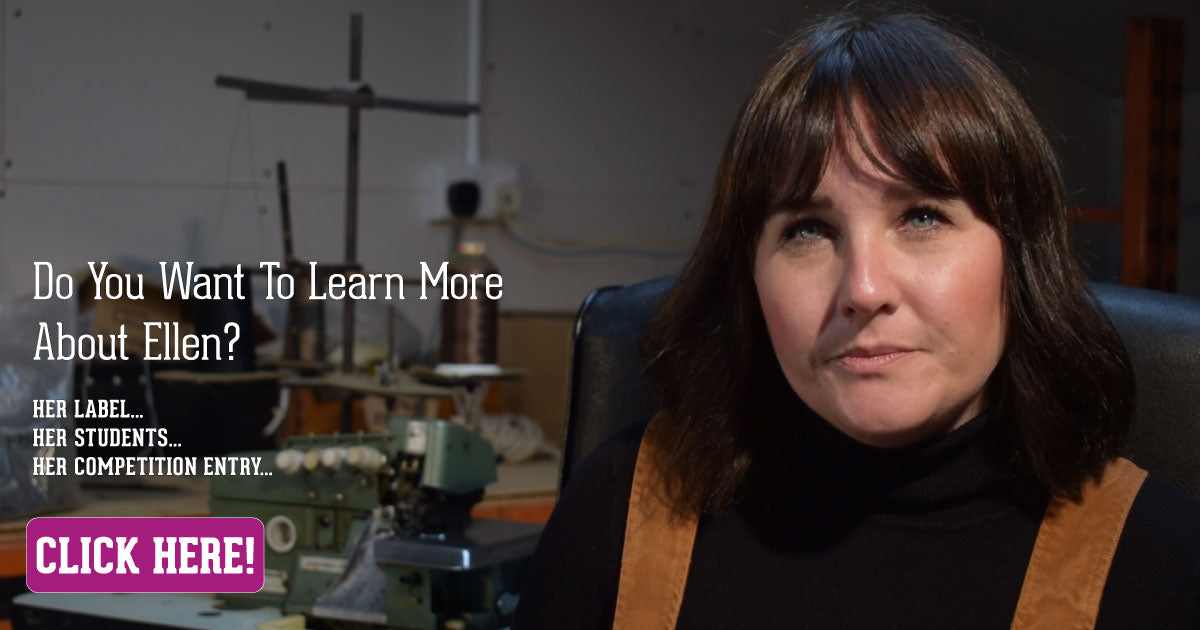Sustainable Fashion | Will Your Grandchildren Be Wearing Your Clothes?
Today, Sustainable Fashion is a hot topic.
The want, and indeed need, for the environmental and social sustainability is slowly changing every industry on the planet.
Everything from the power we consume, the cars we drive, the food we eat and the clothes we wear.
DAS Outdoors has been way ahead of this curve, without many people realising.
We were established in 1988, originally as an army surplus store.
Army surplus and clothes from charity shops have been the epitome of sustainable fashion for decades.
Clothing that was designed, manufactured, sold, worn and discarded by one person, were given new lives by another.
The Modern Fashion Designer
There is a new breed of fashion designer that isn't prepared to leave that new life, the one our old clothes long for, to chance.
Ellen Hembrow is a Fashion Design Engineer that is embracing sustainable fashion and looks at her industry in a different way to most.
According to Ellen, the fashion industry dictates that you design for a particular end user.
Man or women.
Tall or short.
Young or old.
"I think the way that I look at it is quite unique.
I don't design specifically for a particular consumer, because it's so focused on tailoring.
Anybody can wear what I make.
Mine isn't even specific to a gender!"
The Humble Shirt
In an interview we did with Ellen, she spoke about shirts.
How Rich was wearing a shirt on the day of filming, that Ellen herself was wearing a shirt a few days earlier.
"My dad wears shirts, and my children wear shirts.
So it's the same garment just on an array of different people and it doesn't matter your race, your sex, your religion.
Everybody kind of wears these garments, and that's just the way that I look at it."
Has Ellen hit upon the best idea?
The only true route to sustainable fashion?
If all of our clothes were made with tailoring in mind, it wouldn't matter if we got taller with age or our weight fluctuated, because that one piece of clothing could be altered to fit out size and shape at that particular time of our lives.
Handing Down Sustainable Fashion
The ability to tailor means that we could pass on our favourite pieces of clothing to our kids and, in turn, to our grandkids.
Not only is this a huge win for our environment, but it could also help connect us further to our ancestors.
"I have a jacket that was my grandfather's.
It's an old Donkey jacket.
I absolutely adore that jacket.
It was designed for a male, but I'm female, and I wear it.
He wore it to work in the Steelworks, whereas I wear it as a fashion piece because I think it looks good."
Ellen doesn't want you to be told how to wear your clothes, she wants to empower you to wear what you want, how you want.
That we all have a personal relationship with our clothes and that you decide what the relationship is.
"My grandfather wore his jacket to keep him warm, it was work-wear... something that he needed for his job.
I don't need it for my job, but I actually like the way it looks, and I wear it in a completely different way that he would have worn it.
that's my relationship with it."
Raw Materials
Rich challenged Ellen to comment on the materials and techniques we use in clothing manufacture.
He suggested that the connection to her Grandfather she has through his jacket is only possible because it was made with quality materials.
Fabric and techniques that were built to last.
Generations ago, that was typical, we over-engineered products because we didn't want you to wear them out.
Today, at the rate that we purchase clothes, people are drawn to the large high street chains because they are not prepared to pay, or simply can't afford, to pay for quality.
Ellen believes that we can and will get back to this, but to do so the fashion industry needs to slow down.
"That's how we're going to slow everything down.
Think about how we design things, and think about how they're going to last.
There used to be a time when I first started with engineering, we got taught how to make washing machines.
You used to make washing machines that would last.
Now, you make a washing machine that lasts five years, because then [consumers] get a new washing machine and that company makes more money.
That doesn't sit right with me."



Connect